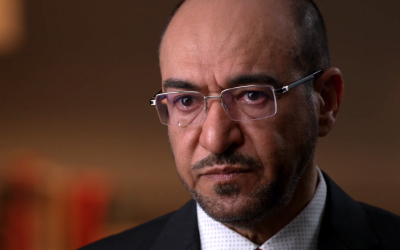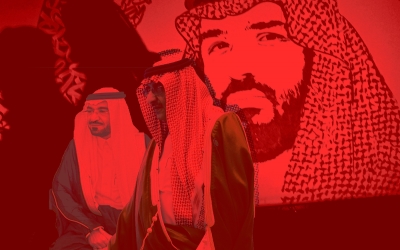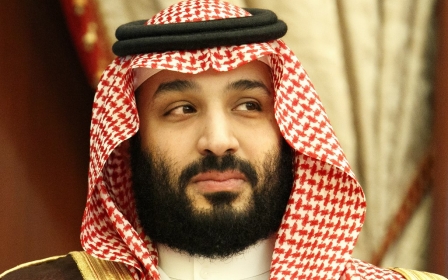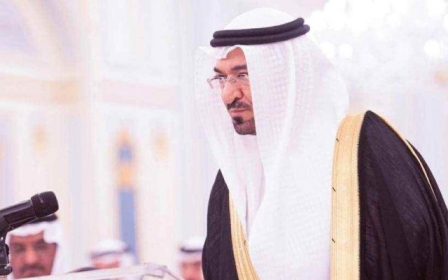Saudi Arabia: Is the US finally turning on Mohammed bin Salman?
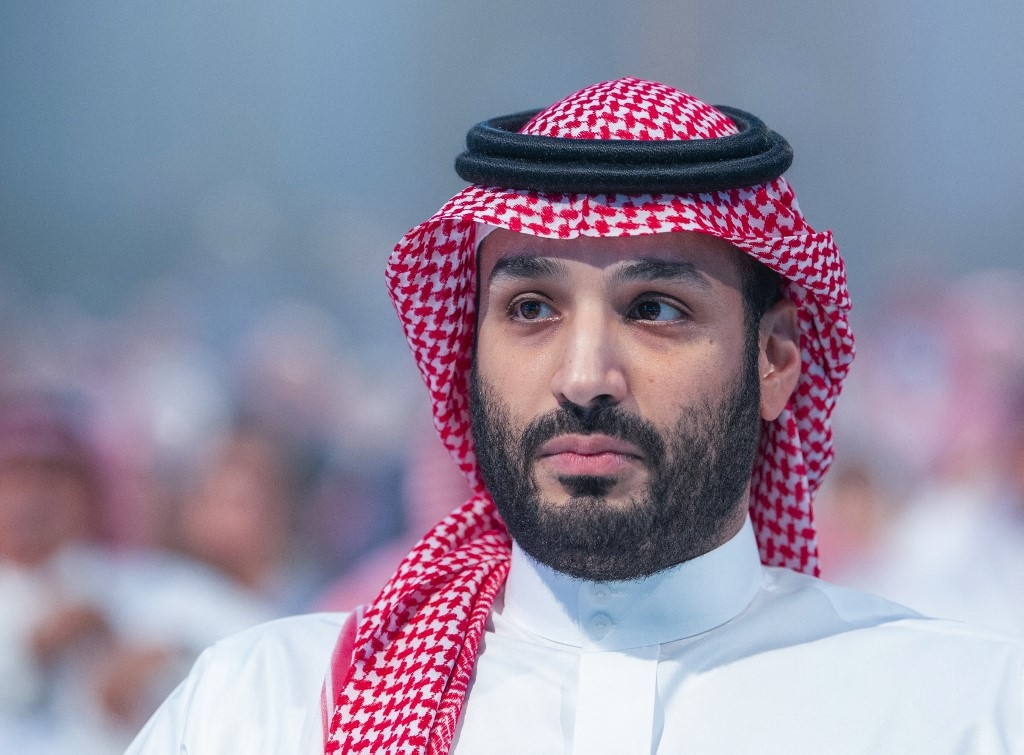
On Sunday, a Saudi Arabian thriller was broadcast on CBS's 60 Minutes programme.
During the broadcast, Saad al-Jabri, a now Canada-based former top intelligence official and adviser to deposed Interior Minister Mohammed bin Nayef, spoke of the intrigues of Saudi Crown Prince Mohammed bin Salman, warning the international community of the danger posed by a "psychopath killer in the Middle East with infinite resources".
The timing of the revelations is key, with the future stability of Saudi Arabia at stake and Bin Salman, with his father ageing, preparing to become king himself
In the show, Jabri alleged that in 2014 Mohammed bin Salman threatened to kill Saudi King Abdullah, his uncle (who died in 2015), with a poison ring from Russia in order to clear the throne for his father, King Salman.
Jabri also claimed that Bin Salman had dispatched a death squad, known as the "Tiger Squad", to Canada, where he lives in exile, to assassinate him only weeks after the October 2018 killing of Saudi dissident journalist Jamal Khashoggi. Washington Post and Middle East Eye columnist Khashoggi had been lured to the Saudi consulate in Istanbul, where he was brutally murdered.
After failing to assassinate Jabri, Bin Salman retaliated by detaining two of Jabri’s children in Riyadh. They remain in prison.
New MEE newsletter: Jerusalem Dispatch
Sign up to get the latest insights and analysis on Israel-Palestine, alongside Turkey Unpacked and other MEE newsletters
Demoralised and fearful
This saga will continue to unfold as both antagonists take their battle to US courts. Bin Salman has accused Jabri of stealing billions of dollars when Bin Nayef was in charge of huge funds, set aside to help rid Saudi Arabia of terrorists.
As well as accusing Bin Salman of wanting to kill him in exile, Jabri also claims that he has video recordings of the crown prince's threats against King Abdullah. In the CBS programme, Jabri, a multi-millionaire in hiding, looked demoralised and fearful for his own life and the future of his detained children.
The details of this story may be interesting, but they are fairly common with dictatorships, where fantasy and reality converge, treachery and intimacy intermingle. However, the timing of the revelations is key, with the future stability of Saudi Arabia at stake and Bin Salman, with his father ageing, preparing to become king himself.
It appears that Jabri chose exile in Canada rather than the US, where his CIA friends continue to publicly defend him. The Canadian hiding place seems to distance the US administration from Saudi intrigues. This would give Jabri the opportunity to challenge his former masters in Riyadh.
Or perhaps Jabri’s appearance on 60 Minutes is a sign that the US and its intelligence services intend to play an indirect role in shattering Bin Salman’s dream to sit on the throne. Saudi Arabia, in terms of geopolitics and its resources, remains of vital importance to the global community and the US cannot remain passive.
US motives
Perhaps Jabri’s revelations have been aired because of a US desire to see an alternative prince in charge of Saudi Arabia - someone who has not tarnished the reputation of his country, assassinated journalists abroad, driven hundreds of Saudis into exile and detained thousands at home. In recent weeks, oil prices have sharply risen and Saudi Arabia is being partly blamed for the current global energy crisis.
Jabri’s allegations must be troubling for the young prince in Riyadh. After several years of trying hard to erase the memory of Khashoggi's murder, Bin Salman is now being openly challenged by an insider who knows very well the modus operandi of the Saudi deep state.
Jabri is also familiar with the intimate relations Saudi Arabia had maintained with the CIA and other intelligence services. Should the latter be implicated in future allegations, Jabri's revelations will be an embarrassment to not only Riyadh but Washington, too.
It seems that Jabri is willing to provide evidence in court against Bin Salman in an attempt to free his children and clear his own reputation.
Bin Salman wants Jabri back in Riyadh - just like he wanted Khashoggi to return to the country, lest he reveals more details of how the Saudi leadership plots murder, executes its opponents and conspires against other countries.
During his time in the kingdom’s interior ministry, Jabri was closely involved in counterterrorism activity and was understood to have had close ties with US intelligence services under the leadership of bin Nayef.
Silencing Saudi dissent
Bin Nayef was in charge of security during the Arab uprisings in 2011, when Saudis broke their silence and staged demonstrations across the country calling for justice. Hundreds of peaceful activists, such as Sulaiman al-Rashudi, Mohammed Saleh al-Bajadi, Mohammed al-Qahtani and Waleed Abu al-Khair, to name a few, were detained under the guise of fighting terrorism.
It is possible to see Jabri’s interview on '60 Minutes' as the venting of anger and frustration at his own demise
On reflection, it is possible to see Jabri’s interview on 60 Minutes as the venting of anger and frustration at his own demise from a position of high political power coupled with his guilt about leaving behind his two innocent children, now held hostage in Riyadh.
So, while it is easy to sympathise with the emotional anguish of a father who miscalculated the brutality of the current crown prince, many Saudi dissidents regard Jabri as not totally innocent. After all, he was a member of a regime that continues to rule the country with total impunity.
The views expressed in this article belong to the author and do not necessarily reflect the editorial policy of Middle East Eye.
This article is available in French on Middle East Eye French edition.
Middle East Eye delivers independent and unrivalled coverage and analysis of the Middle East, North Africa and beyond. To learn more about republishing this content and the associated fees, please fill out this form. More about MEE can be found here.



